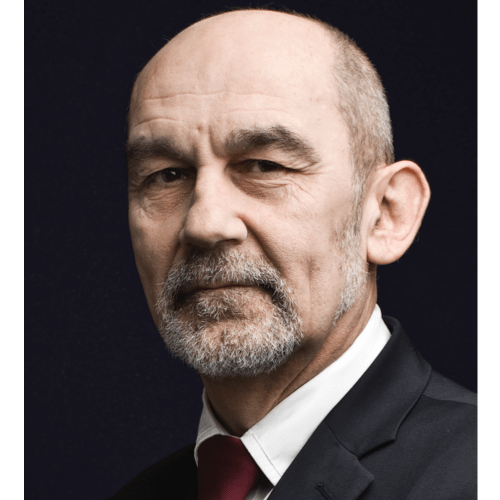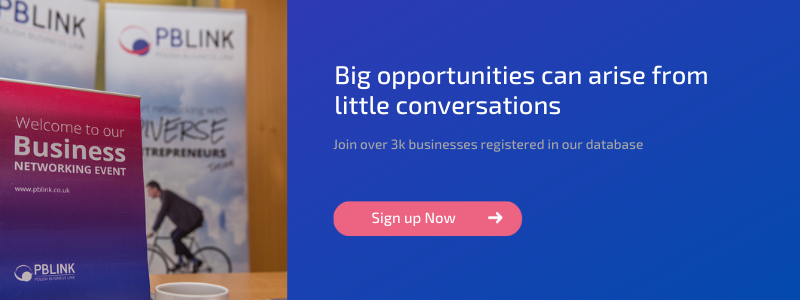 The Third Congress of Polish Entrepreneurs in the UK, held at NatWest Bank’s London headquarters on Wednesday 19 October, proved that Poles are becoming increasingly adept at growing successful businesses in Britain.
The Third Congress of Polish Entrepreneurs in the UK, held at NatWest Bank’s London headquarters on Wednesday 19 October, proved that Poles are becoming increasingly adept at growing successful businesses in Britain.
The event, which attracted over 150 business owners from across the UK, was opened by Michael Dembinski, the BPCC’s chief advisor, and Bartłomiej Kowalczyk, founder of Polish Business Link, who organised the Congress. This year’s event focused on scaling up your business, building scale into a start-up and accelerating growth. However, the question of Brexit and how it will affect businesses run by Poles in the UK, also featured prominently.
As in previous Congresses, the philosophy of Polish Business Link to open Polish entrepreneurs to the massive possibilities that the UK offers in terms of access to know-how and capital from many diverse sources was evident.
“With each passing year, Polish entrepreneurs are gaining experience, contacts and clients; they are becoming acclimatised to the UK’s business environment, which in many ways is more conducive to business growth” Michael Dembinski, Chief Adviser, BPCC
The first session of the congress focused on scaling up the start-up
 The first speaker was Taz Hossain, founder and executive partner at Avouch Capital UK LLP, managing director of Cogent Growth, and advisor and mentor at Seed Investments. Mr Hossain has worked with hundreds of start-up businesses, helping them to grow more rapidly. As a highly experienced growth coach and mentor, Mr Hossain spoke about the most frequently encountered hurdles and barriers to growth.
The first speaker was Taz Hossain, founder and executive partner at Avouch Capital UK LLP, managing director of Cogent Growth, and advisor and mentor at Seed Investments. Mr Hossain has worked with hundreds of start-up businesses, helping them to grow more rapidly. As a highly experienced growth coach and mentor, Mr Hossain spoke about the most frequently encountered hurdles and barriers to growth.
Steve Turner, a partner at Exolta Capital Partners who specialises in high growth strategy development and delivery, is also writer and public speaker on entrepreneurship and also has a track record of developing new business and managing the financial and operational impact of rapid growth within ambitious businesses. Mr Turner reviewed the range of tools available to entrepreneurs in the UK and gave examples of how some fast-growing companies achieved their results.
Jordan Fleming, CEO of DBPL, a company that helps small businesses establish themselves in international markets, talked about how entrepreneurs needs to keep their businesses lean as they expand abroad. He showed the many productivity tools that are available today, as well as the outsourced services that can be bought in to ensure that a business stays focused and does not burn through investors’ cash at an unsustainable rate while expanding into new markets.
Pitching for investors is a crucial part of any entrepreneur’s growth path. Nick Howe of NatWest Business Banking, drew on his 20 years’ work with entrepreneurs to outline a nine-point list of dos and don’ts that make the difference between success and failure.
After a morning break-out session during which participants had the chance to talk to the speakers, the congress reconvened for the Business Clinic, where the emphasis was on learning practical business skills from experienced and successful practitioners.
In the space of a decade, Harun Rashid has built a multi-million dollar company, Hayaa, with a offices and stores spanning the globe. It is a franchise operation, licensing a retail brand in 60 countries. Having failed three times in business, Mr Rashid hit upon the statistic that whereas 80% of start-ups fail in their first three years, the failure rate for franchised businesses is far less – only 5% of McDonalds’ franchised restaurants fail, for example. This is because the franchisor has done all the homework, and sells a proven business concept. Franchising has helped his grow globally while employing only 70 staff himself.
The legal problems that most often face business owners were discussed by Steve Simpkins, owner, founder and principal of Simpkins & Co Solicitors. Having worked with entrepreneurs for many years, Mr Simpkins looked at those areas, such as employment law, where an entrepreneur’s liability for the misconduct of their employees can be much greater than expected. Spending a relatively small amount of time and money on preparing good practices can save vast amounts of money should things go wrong, he said. The key thing is to be able to recogniser those potential areas of dispute where legal conflicts can arise in future, said Mr Simpkins.
Sales and selling lies at the core of business growth. Stuart Lotherington gave an unforgettable presentation about getting the right approach to selling. Working with companies of all sizes, from Google and Expedia down to high-growth start-ups, Mr Lotherington talked about the habits of good salespeople, which in essence boil down to a willingness to listen to the client, to ask the right question (not “can I help you?” but rather “what brought you into the store today”) and to focus on benefits rather than features.
The morning session was wrapped up by Izabella Kaminska from the Financial Times, who gave a fascinating talk about Brexit, presenting it in a historical context of cycles of centralisation followed by decentralisation. Ms Kaminska gave a personal economic outlook for SMEs in the context of Brexit, highlighting the opportunities for smaller players in the economy to pick up business in the wake of a contraction of influence of large corporates, the main beneficiaries of globalisation.
 After lunch and a further chance to mingle and swap impressions and business cards, the afternoon session began with a discussion panel moderated by BBC World News’ presenter Kasia Madera, during which entrepreneurs talked about how Brexit would affect their businesses. The panellists were Marta Stelmaszak, from Want Words, Lloyd Hinton from Insolve Plus, Piotr Kubalka from Capital Business Link, Krzysztof Kierys from BC Printing, Bożena Botul, from Wilkins Kennedy LLP, Ricky Kothari from T-Sticks London, Daniel Stachowiak, from DocSafe Limited, Aleksandra King and Pawel Mes from One Money Mail Ltd T/A Sami Swoi. Opinions were very much divided, depending on sector. Representatives of the financial services sector were concerned about the threat to ‘passporting’, whereas the construction sector could see opportunities for SMEs in the UK.
After lunch and a further chance to mingle and swap impressions and business cards, the afternoon session began with a discussion panel moderated by BBC World News’ presenter Kasia Madera, during which entrepreneurs talked about how Brexit would affect their businesses. The panellists were Marta Stelmaszak, from Want Words, Lloyd Hinton from Insolve Plus, Piotr Kubalka from Capital Business Link, Krzysztof Kierys from BC Printing, Bożena Botul, from Wilkins Kennedy LLP, Ricky Kothari from T-Sticks London, Daniel Stachowiak, from DocSafe Limited, Aleksandra King and Pawel Mes from One Money Mail Ltd T/A Sami Swoi. Opinions were very much divided, depending on sector. Representatives of the financial services sector were concerned about the threat to ‘passporting’, whereas the construction sector could see opportunities for SMEs in the UK.
A new feature in this year’s Congress was the introduction of the elevator pitch – 14 businesses had exactly 100 seconds to present themselves to participants. Companies featured were Practipol, MyDocSafe, Londynek, Kinoteka, IBC Corporate Solutions, Eskom IT, England.pl, Network Bridge Solutions, Kotrak, Rozdale, UKWebSolutions, London Business Academy, BC Printing and Towarzystwa Biznesowe.
Natalia Glabik-Stankiewicz wrapped up the day’s proceedings on behalf of congress partner Sami Swoi, after which the recently appointed Polish Ambassador to London, Arkadiusz Rzegocki, gave the closing speech of the event during which he highlighted the importance of UK-Polish economic relations.

The formal part of the day over, delegates left the conference room to begin networking in earnest, this continued until 20:00, after which many people crossed the road to a nearby pub to continue conversations until closing time.



